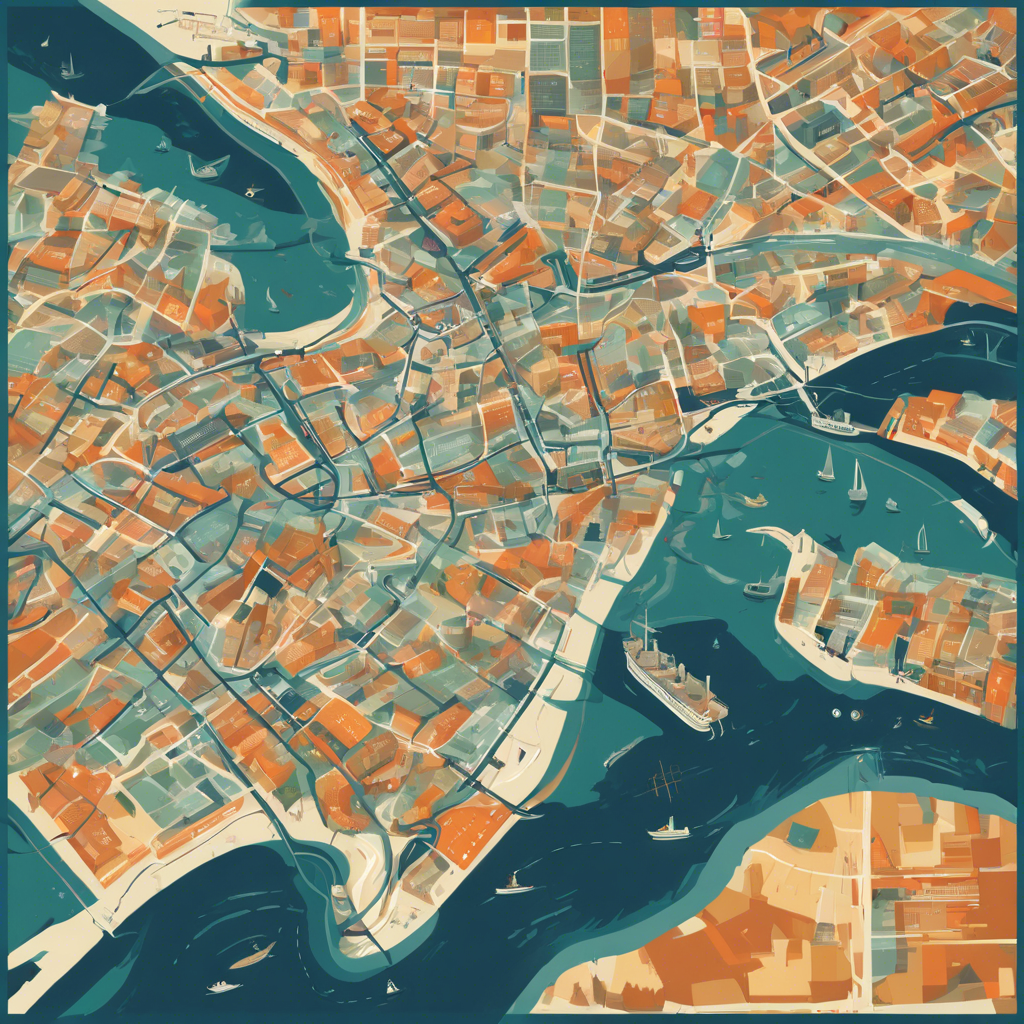
House Price Estimate in Portsmouth: What Factors Impact Your Property’s Value?
Location, Location, Location: The Prime Mover of Property Prices

Neighborhood desirability and reputation
The desirability and reputation of a neighborhood play a crucial role in determining house price estimate Portsmouth. Areas with low crime rates, well-maintained public spaces, and a strong sense of community often command higher prices. For instance, neighborhoods like Old Portsmouth and Southsea are particularly sought-after due to their historic charm and proximity to the seafront.
Proximity to amenities and services
The accessibility of essential amenities and services significantly influences property values. Homes located near shopping centers, healthcare facilities, parks, and public transportation hubs typically fetch higher prices. In Portsmouth, properties close to Gunwharf Quays or within walking distance of Portsmouth & Southsea railway station often see increased valuations.
School district quality and accessibility
The quality of local schools is a key consideration for many homebuyers, particularly families with children. Properties within the catchment areas of highly-rated schools, such as Portsmouth Grammar School or Mayville High School, often command a premium. The accessibility of these educational institutions, in terms of distance and transportation options, further impacts property values.
Property Characteristics: The Building Blocks of Value

2.1. Size and layout of the house
The size and layout of a property are fundamental factors in determining its value. In Portsmouth, as in many urban areas, space comes at a premium. Larger homes with more bedrooms and bathrooms generally command higher prices. Additionally, open-plan layouts and flexible living spaces are increasingly desirable, potentially boosting a property’s value.
2.2. Age and architectural style
The age and architectural style of a property can significantly impact its value. Portsmouth boasts a diverse range of architectural styles, from Georgian townhouses to modern apartments. While period properties in areas like Old Portsmouth often command high prices due to their historical significance and unique features, newer builds with modern amenities can also be highly valued.
2.3. Condition and level of maintenance
The overall condition and maintenance level of a property play a crucial role in its valuation. Well-maintained homes with up-to-date systems (heating, plumbing, electrical) and no significant repair needs typically command higher prices. Conversely, properties requiring extensive renovations may see their values negatively impacted.
Economic Factors: The Broader Market Influences

Local employment rates and job market trends
The health of the local job market significantly influences property values. Portsmouth’s diverse economy, supported by sectors such as naval and maritime industries, tourism, and education, contributes to stable employment rates. Areas with easy access to major employers, such as the Portsmouth Naval Base or the University of Portsmouth, often see higher property values.
Interest rates and mortgage availability
National economic factors, such as interest rates and mortgage availability, play a crucial role in the local property market. Lower interest rates typically make mortgages more affordable, potentially increasing demand and, consequently, property values. Conversely, tighter lending criteria can limit buyer access to financing, potentially dampening demand and prices.
Overall economic health of Portsmouth and surrounding areas
The broader economic health of Portsmouth and its surrounding areas impacts property values. Factors such as GDP growth, inflation rates, and consumer confidence all contribute to the overall economic climate, which in turn affects the property market. Portsmouth’s strategic location and ongoing regeneration efforts have contributed to its economic resilience, generally supporting property values.
Supply and Demand Dynamics in Portsmouth

Current housing inventory levels
The balance between housing supply and demand is a key driver of property values. In Portsmouth, like many UK cities, there is often a shortage of available properties compared to the number of potential buyers. This scarcity can drive up prices, particularly in desirable areas or for certain property types.
Population growth and demographic shifts
Portsmouth’s population dynamics influence the demand for housing. The city has experienced steady population growth, partly due to its university and job opportunities. This growth, combined with changing demographics such as an increase in single-person households, affects the types of properties in demand and their values.
New construction and development projects
The pace of new construction and development in Portsmouth impacts the supply side of the property market. Large-scale developments, such as the Tipner West regeneration project, can influence property values in surrounding areas. New builds often command premium prices but can also affect the values of existing properties in the vicinity.
Government Policies and Regulations

Local zoning laws and land use restrictions
Zoning laws and land use restrictions in Portsmouth can significantly impact property values. These regulations determine how land can be used and developed, affecting the potential for property expansion or redevelopment. Areas with more flexible zoning may see higher property values due to increased development potential.
Property tax rates and assessments
Property tax rates and assessments in Portsmouth directly affect the cost of homeownership and, consequently, property values. Areas with higher property taxes may see slightly lower property values as buyers factor in these ongoing costs. However, if these taxes fund high-quality local services and infrastructure, they may indirectly support property values.
Urban planning initiatives and regeneration projects
Portsmouth’s urban planning initiatives and regeneration projects can have a significant impact on property values. Projects such as the regeneration of The Hard and ongoing improvements to the seafront can increase the desirability of surrounding areas, potentially boosting property values.
Environmental Considerations

Flood risks and coastal proximity effects
As a coastal city, Portsmouth faces unique environmental considerations that impact property values. Areas at higher risk of flooding may see lower property values or increased insurance costs. Conversely, properties with sea views or easy beach access often command premium prices, despite potential long-term risks associated with rising sea levels.
Green spaces and conservation areas nearby
Proximity to green spaces and conservation areas can positively influence property values. Homes near parks, such as Southsea Common, or in conservation areas like Old Portsmouth, often see increased valuations due to the aesthetic and lifestyle benefits these areas provide.
Air quality and noise pollution levels
Environmental factors such as air quality and noise pollution can impact property values. Areas with lower pollution levels and quieter environments are generally more desirable. In Portsmouth, properties away from major roads or industrial areas may command higher prices due to better air quality and reduced noise pollution.
Summary
The valuation of properties in Portsmouth is a complex interplay of various factors, ranging from location and property characteristics to broader economic influences and environmental considerations. While some factors, such as location and property size, have traditionally been key drivers of value, emerging trends in urban planning, environmental awareness, and lifestyle preferences are increasingly shaping the Portsmouth property market. Understanding these multifaceted influences is crucial for both buyers and sellers navigating the local real estate landscape.
Frequently Asked Questions
How often should I get my property valued?
It is advisable to have your property valued every 2-3 years, or more frequently if there have been significant changes in the local property market or improvements to your home.
What home improvements add the most value?
Generally, kitchen and bathroom renovations, adding an extra bedroom or bathroom, and improving energy efficiency tend to add the most value to a property in Portsmouth.
How do seasonal changes affect house prices in Portsmouth?
The property market in Portsmouth can experience seasonal fluctuations, with spring and early autumn often being busier periods. However, these effects are typically less pronounced than longer-term market trends.
Is it better to sell my house through an estate agent or privately?
While selling privately can save on estate agent fees, using a reputable local agent often results in a quicker sale and potentially higher price due to their market knowledge and buyer network.
How can I challenge my property tax assessment if I believe it’s too high?
You can challenge your property tax assessment by contacting the local council and providing evidence to support your claim, such as recent valuations or sales data for comparable properties in your area.
Curious about what impacts your property’s value in Portsmouth? Get a clear estimate with our free, instant, online valuation tool. It’s easy to use and provides a reliable estimate of your home’s worth. Start your journey towards a better understanding of your property’s value today!